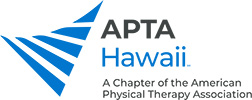This five-session virtual conference will be held on May 22, with 15-minute breaks between sessions. We will send conference login information to registrants after May 17.
CONFERENCE DATE AND TIME:
Saturday, May 22, 2021 – 8:00 a.m. to 4:30 p.m.
COURSE RATES:
EARLY BIRD RATE (through May 9)
All APTA Members $99
Nonmembers $139
REGULAR RATE (May 9 to May 20)
All APTA Members $149
Nonmembers $189
CONTACT HOURS FOR COURSE:
7.5 contact hours
COURSE OPEN TO:
PTs and PTAs only
CONFERENCE SCHEDULE:
[table id=1 /]
SESSION DESCRIPTIONS & OBJECTIVES:
SESSION 1: What Your Patient Really Wants to Know: A Pain Science Approach to Treating Pain
Brett Nielson, PT, DPT, OCS, FAAOMPT
Musculoskeletal diseases account for more than 50% of disabling health conditions reported by adults. Treating pain is hard! This session will help clinicians begin to integrate Pain Neuroscience Education (PNE) into their clinical practice. Current best evidence has shown that neuroscience educational strategies utilizing neurobiology and neurophysiology can reduce pain, increase function, reduce fear and catastrophization, improve movement and change cognitions in people during pain experiences. This session will cover what your patients want to know about pain, my top 10 facts about pain, latest pain neuroscience education research and simple strategies to start meaningful pain conversations with your patients on Monday after the course.
At the conclusion of the session, participants should be able to:
• Apply the four key questions that every patient wants to know during the initial encounter.
• Identify pain as a perception of the brain.
• Recognize the bio-psycho-social complexities of pain.
• Identify five of the “top 10” facts about pain.
• Discuss the importance of trust and a strong therapeutic alliance.
SESSION 2: Non-Fusion Surgical Options for Treatment of Youth Scoliosis
Graham Fedorak, MD
Anterior vertebral body tethering was approved by the FDA in 2019 as a non-fusion surgical treatment for severe adolescent idiopathic scoliosis (AIS) that has failed non-operative modalities. The evidence base and indications for, as well as the limitations of, this new procedure will be discussed, along with how it fits with well-established procedures such as spinal fusion. In addition, we will review non-surgical treatments of AIS including scoliosis-specific physical therapy and brace treatment, and the natural history of AIS after skeletal maturity.
At the conclusion of the session, participants should be able to:
• Understand the natural history of adolescent idiopathic scoliosis and how it guides the treatment principles of pediatric orthopedic surgeons managing teens with this condition.
• Understand the current evidence base of non-operative treatments of AIS including scoliosis-specific physical therapy and brace treatment.
• Understand the principle of “guided-growth” in pediatric orthopedics and how this is used in both the extremities and spine for angular correction of deformity.
• Understand who may be candidates for anterior vertebral body tethering (spinal guided growth) and the relative pros and cons of tethering and spinal instrumentation and fusion for teens with severe scoliosis.
SESSION 3: IT Band Syndrome in Runners: Causes and Correctives
Mike Turner, PT, DPT, OCS, MTC, FAAOMPT
This course will cover identification of the underlying mechanisms for Iliotibial (IT) band syndrome as a cause for knee pain in runners along with a comprehensive review of the most effective evidence-based interventions. This will include corrective exercises, manual therapy techniques, and running drills. Simple video analysis tools will also be demonstrated.
At the conclusion of the session, participants should be able to:
• Understand the underlying mechanisms for IT band syndrome in runners.
• Identify specific gait dysfunctions associated with IT band syndrome.
• Understand how to apply distal IT band and patellofemoral mobilization for immediate symptomatic improvement.
• Understand how to apply corrective exercises for strength and motor control issues specific to IT band syndrome.
• Understand how to instruct running drills for resolution of dysfunctional gait patterns associated with IT band syndrome.
SESSION 4: Neurorehab Practice Updates: Translating CPGs into Practice
Kristen Johnson, PT, MS, EdD, NCS
S. Jacob Melnick, PT, DPT, OCS
Heather David, PT, MPT, EdD, NCS
Clinical Practice Guidelines (CPGs) are intended to help therapists treat patients by providing recommendations based on current best evidence. This session has been developed to highlight and disseminate the CPGs for vestibular hypofunction, concussion, and locomotor function. Additionally, this course will provide case examples for translation into clinical practice.
At the conclusion of the session, participants should be able to:
• Describe the purpose and action statements in the CPGs: vestibular hypofunction, concussion, and locomotor training.
• Differentiate guidelines and research recommendations in the three CPGs.
• Analyze case examples for each of the three CPGs to further clinical decision making for clinical practice.
SESSION 5: Musculoskeletal Sonography in the PT Setting
Doug White, PT, DPT, OCS, RMSK
Musculoskeletal sonography is increasingly being adopted by physical therapists to improve patient management. This presentation will discuss the benefits, barriers and practicalities of incorporating MSK sonography into your practice. Diagnostic and procedural applications will be presented.
At the conclusion of the session, participants should be able to:
• Understand equipment needs to use sonography in your practice.
• Have an introductory knowledge of the diagnostic and therapeutic application of MSK sonography in PT practice.
• Understand the basics of payment for sonography in PT practice.
• Understand the basic limitations of MSK sonography.
SPEAKER BIOGRAPHIES:
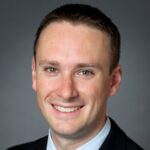 Brett Nielson, PT, DPT
Brett Nielson, PT, DPT
Board Certified Clinical Specialist in Orthopaedic Physical Therapy
Fellow, American Academy of Orthopaedic Manual Physical Therapists
Dr. Brett D. Neilson is the Admissions Director and Assistant Professor of Hawai`i Pacific University’s developing Doctor of Physical Therapy program. Dr. Neilson has published several peer-reviewed articles and presented at both state and national conferences. His current research agenda focuses on the relationship between sleep and pain. He continues to practice in clinical care in the state of Washington for an in-home, outpatient physical therapy company. Dr. Neilson received his DPT from the University of Puget Sound in Tacoma, WA.
Graham Fedorak, MD
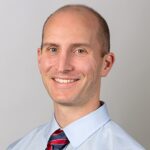 Dr. Graham Fedorak is a pediatric orthopedic surgeon at Kapi’olani Medical Center in Honolulu. After medical school and residency at Queen’s University in Canada he completed a fellowship in pediatric orthopedics at Shiners Los Angeles before joining Shriners Honolulu in and then the University of Utah, working both at Shriners Intermountain and Primary Children’s Hospital, where his practice focused on scoliosis and spinal deformity. He has presented and published on scoliosis at both the national and international level and written several textbook chapters on early-onset scoliosis. He continues scoliosis research and serves as an expert reviewer for Spine and the Journal of Pediatric Orthopedics, as a member of the Research Committee of the Pediatric Orthopedic Association of North America, and as a lecturer on early-onset scoliosis.
Dr. Graham Fedorak is a pediatric orthopedic surgeon at Kapi’olani Medical Center in Honolulu. After medical school and residency at Queen’s University in Canada he completed a fellowship in pediatric orthopedics at Shiners Los Angeles before joining Shriners Honolulu in and then the University of Utah, working both at Shriners Intermountain and Primary Children’s Hospital, where his practice focused on scoliosis and spinal deformity. He has presented and published on scoliosis at both the national and international level and written several textbook chapters on early-onset scoliosis. He continues scoliosis research and serves as an expert reviewer for Spine and the Journal of Pediatric Orthopedics, as a member of the Research Committee of the Pediatric Orthopedic Association of North America, and as a lecturer on early-onset scoliosis.
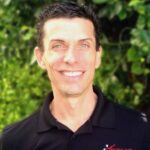 Mike Turner, PT, DPT
Mike Turner, PT, DPT
Board Certified Clinical Specialist in Orthopaedic Physical Therapy; Manual Therapy Certification; Fellow, American Academy of Orthopaedic Manual Physical Therapists
Dr. Mike Turner has been a clinician and a runner for almost three decades. He has taught continuing education in the US and abroad for 23 years. He is the developer of the Amplified Momentum Propulsion (AMP) running approach.
Kristen Johnson, PT, MSPT, EdD
Board Certified Clinical Specialist in Neurologic Physical Therapy
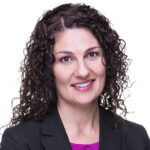 Dr. Kristen Johnson is the Director of Curriculum and an Associate Professor at Hawai’i Pacific University’s DPT program and the Neurorehabilitation Concentration Track Director in Rocky Mountain University’s PhD program. Dr. Johnson teaches clinical neuroscience and in the neuromuscular practice curricula at both universities. Her clinical career has focused on supporting adults post-stroke, after traumatic brain injury, and with vestibular dysfunction. Her research interests involve knowledge translation of interprofessional education, hybrid teaching and learning, and the application of activity and participation-based outcomes measures in clinical practice. Dr. Johnson received her Bachelor of Science in Physical Therapy degree from Quinnipiac University, her master of science degree from Texas Woman’s University, and her doctorate of education from the University of St. Augustine for Health Sciences.
Dr. Kristen Johnson is the Director of Curriculum and an Associate Professor at Hawai’i Pacific University’s DPT program and the Neurorehabilitation Concentration Track Director in Rocky Mountain University’s PhD program. Dr. Johnson teaches clinical neuroscience and in the neuromuscular practice curricula at both universities. Her clinical career has focused on supporting adults post-stroke, after traumatic brain injury, and with vestibular dysfunction. Her research interests involve knowledge translation of interprofessional education, hybrid teaching and learning, and the application of activity and participation-based outcomes measures in clinical practice. Dr. Johnson received her Bachelor of Science in Physical Therapy degree from Quinnipiac University, her master of science degree from Texas Woman’s University, and her doctorate of education from the University of St. Augustine for Health Sciences.
Heather David, PT, MPT, EdD
Board Certified Clinical Specialist in Neurologic Physical Therapy
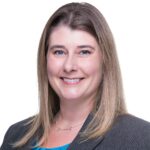 Dr. Heather David works clinically with adults with neurologic diagnoses and is also an International Para Surfing Medical Classifier. Dr. David has worked in a variety of clinical settings including acute care, inpatient rehabilitation, outpatient neurologic, outpatient orthopedic, and brain-injury day treatment. Her clinical emphasis is working with patients affected by neurological, balance, and vestibular disorders. She is an assistant professor at the San Marcos campus of the University of St. Augustine in the Flex DPT Program. She received her Master of Physical Therapy degree from the University of Florida and a Doctorate of Education from the University of St. Augustine.
Dr. Heather David works clinically with adults with neurologic diagnoses and is also an International Para Surfing Medical Classifier. Dr. David has worked in a variety of clinical settings including acute care, inpatient rehabilitation, outpatient neurologic, outpatient orthopedic, and brain-injury day treatment. Her clinical emphasis is working with patients affected by neurological, balance, and vestibular disorders. She is an assistant professor at the San Marcos campus of the University of St. Augustine in the Flex DPT Program. She received her Master of Physical Therapy degree from the University of Florida and a Doctorate of Education from the University of St. Augustine.
S. Jacob Melnick, PT, DPT
Board Certified Clinical Specialist in Orthopaedic Physical Therapy
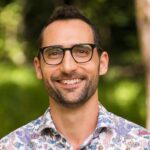 Dr. Jacob Melnick works as Director of Clinical Education and as an assistant professor of the developing DPT program at Hawai’i Pacific University(HPU). Prior to joining HPU, Dr. Melnick practiced as a physical therapist at Tripler Army Medical Center and was the Functional Restoration Program Director in the Interdisciplinary Pain Management Center. During his nine years of clinical practice, Dr. Melnick also served at Keesler Air Force Base and was the director of the Keesler DPT internship program. Dr. Melnick has additional training as a Certified Strength and Conditioning Specialist and as a USA Track and Field Level 1 Coach. He is also a Board-Certified Clinical Specialist in Orthopedic Physical Therapy. He has presented at multiple state and local conferences and he is in the process of furthering his education with a Doctor of Health Science degree from A.T. Still University.
Dr. Jacob Melnick works as Director of Clinical Education and as an assistant professor of the developing DPT program at Hawai’i Pacific University(HPU). Prior to joining HPU, Dr. Melnick practiced as a physical therapist at Tripler Army Medical Center and was the Functional Restoration Program Director in the Interdisciplinary Pain Management Center. During his nine years of clinical practice, Dr. Melnick also served at Keesler Air Force Base and was the director of the Keesler DPT internship program. Dr. Melnick has additional training as a Certified Strength and Conditioning Specialist and as a USA Track and Field Level 1 Coach. He is also a Board-Certified Clinical Specialist in Orthopedic Physical Therapy. He has presented at multiple state and local conferences and he is in the process of furthering his education with a Doctor of Health Science degree from A.T. Still University.
Doug White, PT, DPT
Board Certified Clinical Specialist in Orthopaedic Physical Therapy, Registered in Musculoskeletal Sonography
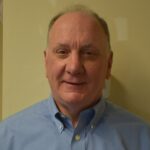 Dr. White has more than three decades experience as an orthopaedic physical therapist. He teaches musculoskeletal ultrasound nationally to physical therapists, physicians, and athletic trainers. Dr. White helped write the American Institute of Ultrasound in Medicine Practice Guideline for the Performance of Selected Ultrasound-Guided Procedures and is the past-President of the Imaging Special Interest Group and past Co-Chair of the Hip Panel for the Clinical Practice Guideline Project of the Academy of Orthopaedic Physical Therapy. He is the Chair of the Imaging section of APTA’s Frontiers in Research, Science and Technology Council and has been published numerous times on topics related to imaging, orthopaedics and practice management.
Dr. White has more than three decades experience as an orthopaedic physical therapist. He teaches musculoskeletal ultrasound nationally to physical therapists, physicians, and athletic trainers. Dr. White helped write the American Institute of Ultrasound in Medicine Practice Guideline for the Performance of Selected Ultrasound-Guided Procedures and is the past-President of the Imaging Special Interest Group and past Co-Chair of the Hip Panel for the Clinical Practice Guideline Project of the Academy of Orthopaedic Physical Therapy. He is the Chair of the Imaging section of APTA’s Frontiers in Research, Science and Technology Council and has been published numerous times on topics related to imaging, orthopaedics and practice management.
MEMBER RATES:
All APTA members are eligible for discounted member rates, regardless of which state chapter you belong to. You must be a member in good standing as of the date of the conference to be eligible for all member rates. Registrants who have a membership expiration date prior to the conference must provide proof of membership before the conference begins or they will be subject to paying the nonmember rate. New APTA members who do not yet have a member number must submit a copy of their membership application form or emailed confirmation to receive the member rate.
REGISTRATION CANCELLATION:
To cancel, email the chapter at info@aptahawaii.org or call (800) 554-5569 x113. Cancellations received by May 14 will receive a full refund minus a $15 cancellation fee. Cancellations received between May 14 and May 22 will not be eligible for a refund.
COURSE CANCELLATION:
In the unlikely event that the chapter must cancel the course/conference, the chapter will provide a refund of registrations fees. APTA Hawaii will not be responsible for additional costs, such as travel, incurred by registrants.
CONTINUING COMPETENCY UNITS:
The 2021 Virtual Spring Conference is sponsored by APTA Hawaii, the Hawaii chapter of the American Physical Therapy Association. Pursuant to HRS section 461J-10.13, physical therapist and physical therapist assistant continuing competence units must be obtained from a provider or agency approved by the Hawaii Board of Physical Therapy. APTA Hawaii is a board-approved provider of continuing competence units and certifies that this course is applicable to the physical therapy scope of practice in the state of Hawaii. PTs and PTAs from other states who wish to attend this course must contact their licensing board to determine if the course meets the continuing competence rules and guidelines for their state and/or licensing board.
QUESTIONS:
If you have any questions about this conference, please contact us at info@aptahawaii.org or (800) 554-5569.
